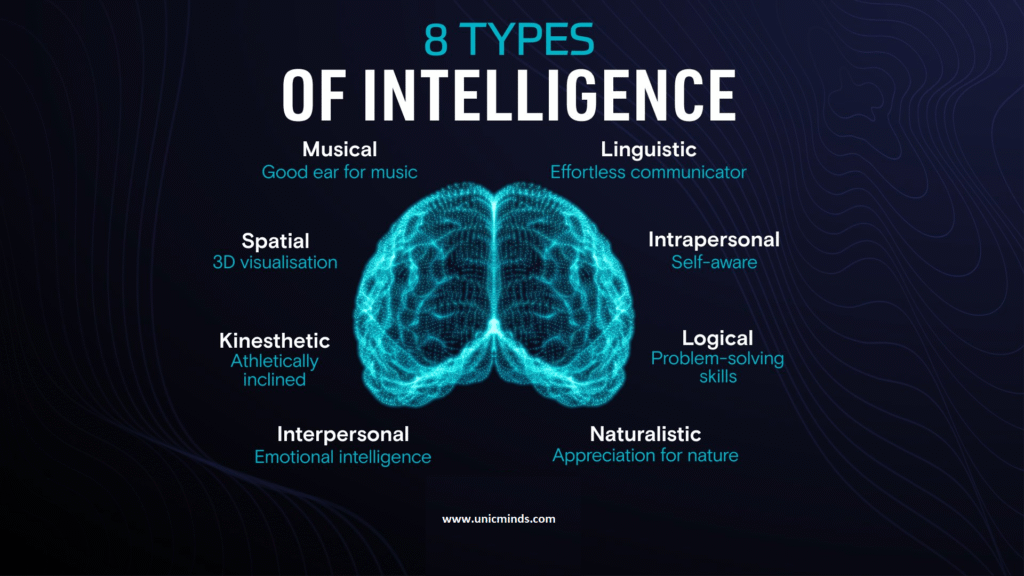Intelligent behavior is using what one knows about the relevant world and using it to get what they want. It is the capability of using one’s knowledge about the world to make decisions in completely novel situations. Intelligence takes many forms in the real world.
Introduction to the Theory of Multiple Intelligences
Dr. Howard Gardner, professor of education at Harvard University, has developed the theory of multiple intelligences in 1993. He proposed that the traditional view of looking at intelligence as an IQ based intelligence is far too limited and it doesn’t cover the true human potential. Dr. Gardner proposed eight difference types of intelligence to account for all types of intelligence in children and adults.
- Linguistic intelligence (word smart)
- Logical/mathematical intelligence (logical smartness)
- Pictures (spatial intelligence)
- Physical Intelligence (Bodily-kinesthetic intuition and smartness)
- Musical intelligence (musical intuition and smartness)
- Interpersonal intelligence (social leadership and smartness)
- Intrapersonal intelligence (introspective intelligence)
- Naturalist intelligence (natural world smartness)
Different people are smart in different ways. Hence, education shouldn’t have a “one size fits all, whoever doesn’t fit is dumb” approach. One might observe in the real world that, some people just have a knack for certain sport, some people have a knack to socialize more, some have a good ear for music and somebody else has a keenness to express something artistic naturally. This doesn’t mean that others cannot develop the same skills, but one should also respect that different people are intelligent in different ways. That shouldn’t be ignored.
For example, if you’re learning about the topic calculus in mathematics or the topic of friction in physics, most people find it easier to understand a topic like friction because it is something that is practiced everyday by everyone whereas one might struggle to understand the application of integral calculus. But, at the same time, within the base of students who are struggling to intuitively understand calculus there will be a set of students who are extremely good at calculus. The point is: some people excel in a subject only when they understand the concepts in an intuitive and applicative manner, some people are comfortable with not having that level of understanding but still move on and do well in that subject. It is almost the same in adults too. So, intelligence is just not about IQ, it is much more than one way of logical intelligence.
You don’t have to teach or learn each topic in eight ways; these eight ways and more are some of the common ways we learn in this world and each of us have a strength associated to some of them. We must decide and understand oneself – which pathways bring out the interest and passion in you to learn and make you understand something in the most integral way, and even the fastest way, sometimes. As we understand this about ourselves, we also start appreciating different types of neurodiversity and different types of intelligence in others and hence develop that mutual respect for other people.
Hope this is useful, thank you.
You may like to learn: Abacus Classes for Kids, Parenting Styles for Kids, and How Coding and Math are complementary?




